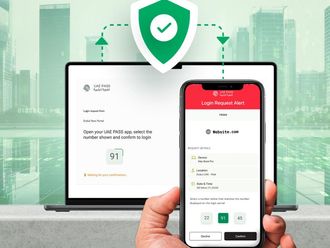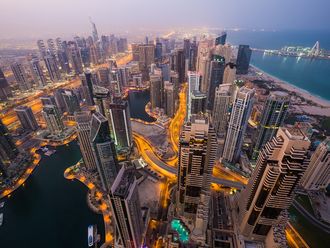The UAE’s national railway system is expected to bring an increase of Dh3.5 billion to the country’s gross domestic product (GDP) by 2030 and the project has an economic return rate of 15.5 per cent, said an official at Etihad Rail, the railway’s master developer and operator.
Stage one of the Dh40 billion railway network is expected to bring more than Dh2 billion worth of savings to the UAE economy, said Graeme Overall, business development director at Etihad Rail during the Middle East Rail conference yesterday.
Etihad Rail has already signed memoranda of understanding with 14 companies in the chemical, logistics and agriculture sectors as potential customers to transport their materials around the UAE via rail when stage two is operational, he said. Some of these companies include Sharjah Cement, Centre of Waste Management in Abu Dhabi, DHL and Emirates Steel.
Asked when the tenders for stage three will start, he said “we expect it to be soon” but would not specify the dates. Stage three will link the rail from the Jebel Ali through the E611 highway to the northern emirates. It will serve the industrial areas in Dubai, Sharjah and Ajman as well as quarries in the Hajjar mountains.
For stage three, Etihad Rail is “working closely” with each of the emirates involved to define and safeguard the route and preliminary engineering is “well underway”, according to the company.
Stage two, which will connect Dubai and Abu Dhabi, is currently in the tendering process. Stage one, linking Habshan to Ruwais, is scheduled for completion by the end of this year.
When completed, the Etihad Rail network — which will cater to both freight and passengers — will span a total of 1,200 km across the UAE. The network will also form part of the GCC Railway Network – linking the UAE to Saudi Arabia via Ghweifat in the west and Oman via Al Ain in the east.
Telecom and signalling
With the influx of railway projects in the GCC, the market for telecom systems used within the railways is estimated to be worth $500 million, according to market studies cited by Chinese ICT company Huawei.
Huawei has a contract to provide telecom and ICT solutions for Etihad Rail’s trains and operations, said Rabii Ouadi, head of business development at Huawei in the Middle East.
Huawei provides solutions to Etihad Rail for GSMR, a wireless communications system used by railway networks so that for example a train driver can communicate with the control room at all times, he said.
Huawei’s contract is with the Italian consortium of companies undertaking the construction contract for Etihad Rail at stage one, he said. Telecom comprises about five percent of the total project.












